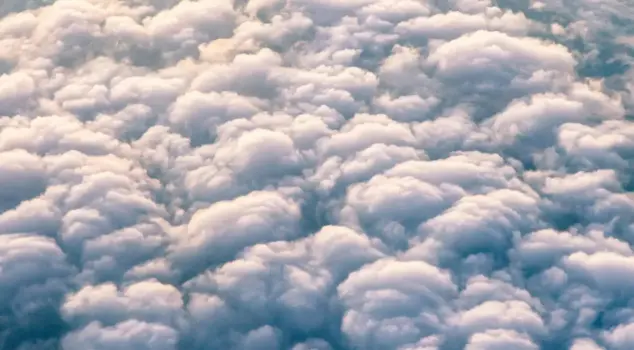
16.11.2025 16:56
In Iran, which is experiencing the most severe drought period in recent years, cloud seeding efforts have begun to create rainfall. Iran, which accuses Israel and the United Arab Emirates of "stealing our clouds," conducted its first cloud seeding operation in the region where Lake Urmia, which has largely turned into a salt desert, is located.
The Iranian Meteorological Organization announced that rainfall across the country has decreased by 89% compared to the long-term average, declaring that the country is experiencing "the driest autumn in the last 50 years." It was noted that the amount of rainfall in the capital Tehran has dropped to the lowest level in a century, and many provinces have not received any rain for months.
FIRST APPLICATION IN THE URMIA LAKE BASIN
According to the official agency IRNA, the first cloud seeding operation was carried out in the region where Lake Urmia, which has largely receded and turned into a salt desert due to prolonged drought, is located. It was reported that efforts to increase the water level for Lake Urmia, Iran's largest lake, will also continue in other provinces.
IRAN HAD PREVIOUSLY OPPOSED
The decrease in water resources and the effects of climate change in the Middle East have turned rainfall generation methods into a point of tension among countries. Iranian officials have accused Israel and the UAE in previous years of "interfering with rain" through cloud seeding, claiming that clouds leave rainfall before reaching Iran. Brigadier General Gholam Reza Jalali from the Revolutionary Guards stated in 2018, "Both Israel and another country are working to prevent rain in Iran"; the other country referred to at that time was noted to be the UAE.
WHAT IS CLOUD SEEDING?
Cloud seeding is a method aimed at triggering precipitation by spraying particles such as silver iodide or salt into clouds using aircraft. Iran announced last year that it could now fully implement this technology with its own resources.
The Meteorological Organization stated that rainfall across the country has decreased by approximately 89% compared to the long-term average, declaring, "We are currently experiencing the driest autumn in the last 50 years." It was expressed that the amount of rainfall in the capital Tehran is at the lowest level in a century, and many provinces have not received a single drop of rain for months.
President Masoud Pezeshkian warned in an assessment this month that if rainfall does not begin before winter, evacuation scenarios may come to the agenda in Tehran.